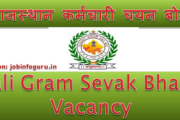7 Timeless Creativity Lessons from Steve Jobs – Insights for Indian Jobseekers
In an age of rapid automation and AI expansion, creativity has become one of the most valuable human skills. For Indians navigating today’s job market—whether fresh graduates or seasoned professionals—enhancing creativity isn’t a luxury; it’s a career necessity. Few individuals have embodied creative excellence like Steve Jobs, the co-founder of Apple Inc., whose multidisciplinary thinking transformed industries. By reflecting on Jobs’s guiding creative principles, jobseekers can better position themselves for tomorrow’s opportunities.
This article distills seven potent ideas attributed to Jobs, combining insights from The Economic Times with supporting interpretations drawn from broader innovation research. We also localize these principles for the Indian job landscape to ensure their relevance and applicability.
1. Connect More Dots
One of Jobs’s central philosophies was to expose oneself to diverse disciplines. Creativity, he believed, often arises not from depth alone but from cross-domain fluency. As explained in The Economic Times article, Jobs advised seeking inputs from arts, calligraphy, science, technology, and humanities, then consciously reflecting on these exposures.
- Attend lectures or webinars outside your domain (e.g., an engineer attending a design workshop).
- Read broadly: Mix productivity with poetry, novels with news.
- Use journaling to link ideas from separate spheres.
For Indian readers, this advice harmonizes well with our pluralistic culture. A computer science graduate interning at a rural NGO can gain design empathy. An MBA student who learns Hindustani classical music may develop better storytelling.
2. Simplicity Is Genius
The second lesson emphasizes eliminating the unnecessary. Jobs often said, “Simple can be harder than complex.” Indian professionals must learn to distill ideas, not drown them in jargon. Whether writing a resume or pitching to a recruiter, clarity trumps complexity.
Practice minimalist communication by using tools such as the pyramidal structure (main idea at the top, details follow) and frameworks like 5W1H (Who, What, When, Where, Why, How).
3. Stay Hungry, Stay Foolish
This iconic Jobs phrase, cited in his 2005 Stanford commencement address, calls for continuous curiosity and humility. For jobseekers in India’s competitive tech and startup ecosystem, this means:
- Detach from comparison and focus on personal growth.
- Take calculated risks, like pursuing unconventional career moves temporarily.
- Stay humble enough to learn from non-traditional mentors.
4. Embrace Failure As Fuel
Far from fearing failure, Jobs welcomed it. His exit from Apple in 1985 led to another creative renaissance: Pixar and NeXT. In India, where failure carries social stigma, shifting mindset is crucial. For example, rejection in a campus placement isn’t a dead-end but a redirection. Individuals can use the downtime to upskill via certifications or freelancing projects.
5. Learn by Doing
Jobs believed in prototyping fast and iterating often—a mindset akin to India’s jugaad innovation. For job candidates, this suggests:
- Build small, consistent projects—even unpaid ones—to showcase initiative.
- Create a GitHub repository, portfolio, or blog documenting your progress.
- Convert ideas into minimum viable outcomes to demonstrate capability.
6. Protect Your Time Like a Designer
Jobs was fiercely protective of his focus. In India, where multitasking often masquerades as productivity, blocking uninterrupted time can yield radical creative strides. Apply principles of ‘Deep Work’ (Cal Newport) to concentrate during your most alert hours.
7. Build for Legacy, Not Just Profit
A final but vital lesson: Jobs was driven more by the idea of denting the universe than making a quick return. For Indian youth eyeing roles in high-pressure fields, aligning career goals with personal meaning rather than monetary markers alone enables sustained creativity.
Think beyond titles and incentives. Ask yourself: What problems do I deeply care about solving?
Extended Insights: Complementing Jobs’s Ideas with Academic Research
Professors Howard Gardner and Teresa Amabile from Harvard have extensively studied creative cognition, refining multiple intelligences and intrinsic motivation as key pillars. Current studies in The Journal of Creative Behavior echo Jobs’s belief: creativity requires both breadth of exposure and depth of purpose.
One corroborating discovery is the “Remote Associates Test” (Mednick, 1962), which measures creative thinking by identifying underlying connections between seemingly unrelated words—reinforcing the value in “connecting dots” as Jobs described.
Further, findings published in the International Journal of Indian Psychology show that Indian students exposed to inter-disciplinary tasks in school developed higher creativity measures than mono-disciplinary peers, which aligns with Jobs’s broader emphasis on varied intellectual inputs.
Application for the Indian Job Market
India hosts the world’s youngest workforce, and its demographic dividend can be optimized through innovation-driven employment. Creativity is a premium skill in sectors spanning:
- Product design in Indian SaaS ventures.
- UX/UI roles for mobile-first users across Bharat.
- AI ethics and emerging technology law.
With startups booming in Tier-II cities and platforms like ONDC transforming commerce, creative thinkers are needed in content moderation, public policy, and consumer research.
Moreover, the National Education Policy 2020 emphasizes experiential learning and inter-disciplinarity—offering students early exposure to the very creative foundations Jobs championed.
Practical Tips for Immediate Use
- Set aside 20 minutes daily to consume content outside your expertise.
- Maintain a “dot journal” to track ideas and link observations over time.
- Use platforms like Coursera & Swayam to explore unfamiliar fields.
- Embrace small, imperfect creative projects instead of waiting for a ‘perfect idea.’
- Create a personal ‘learning map’ aligning interests across fields—music, math, mythology, tech, etc.
Summary: Key Takeaways
- Connect More Dots: Multidisciplinary exposure leads to richer creative outcomes.
- Simplicity Sells: Clear, focused ideas stand out in crowded job markets.
- Stay Curious: Lifelong learners adapt better to evolving career landscapes.
- Fail Forward: Mistakes are springboards for iterative creativity.
- Act Proactively: Prototype, test, and execute early ideas.
- Guard Your Focus: Prioritize deep, uninterrupted work sessions.
- Think Legacy: Build careers rooted in personal meaning, not just salary.
Final Thoughts
Creativity, contrary to popular belief, is not a mysterious gift but a cultivated skill. As Steve Jobs taught through both philosophy and practice, it stems from curiosity, simplicity, and the choice to connect unlikely dots. For jobseekers in India, these principles are not just philosophical—when applied with intention, they can shape portfolios, catalyze interviews, and even birth entrepreneurial ventures.
If you found this article insightful, consider subscribing for more career development tips. Share your thoughts in the comments and let us know how you bring creativity into your work.
Source: Economic Times Article on Steve Jobs’ Creativity Tips


